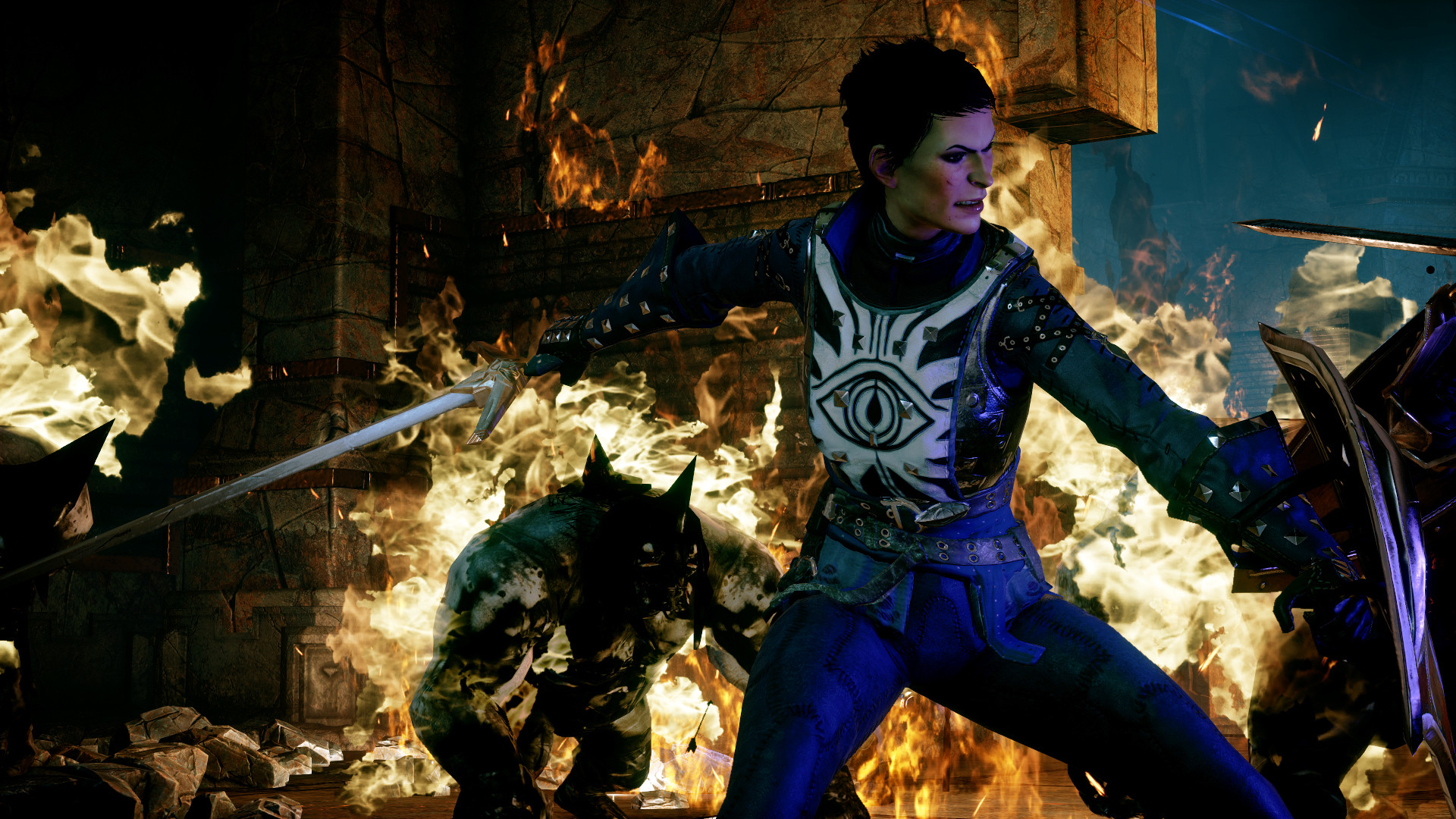Dragon Age writer says there's nothing wrong with magic in games - as long as you avoid one very specific problem
The narrative pitfalls of creating "The Anything Thing"

Dragon Age narrative lead and creator David Gaider has warned of the "long-term headache" in games writing caused by certain magical, all-powerful story elements being introduced.
"One narrative design issue I've run into is what I call the lyrium problem," Gaider said (via Twitter), using Dragon Age's multi-purpose mineral as an example. "This issue doesn't automatically render settings [...] bad or unenjoyable. People like magic. It's fine...for a time. The problem is with long-term narrative cohesion."
Gaider worked on Dragon Age until leaving BioWare in 2016, and although currently developing musical RPG Stray Gods, the "lyrium problem" is still on his mind.
Lyrium is what Gaider considers an 'Anything Thing', essentially a "narrative crack-filler." In games, these could be items, set pieces, or even a multiverse that has the power to explain away plot holes neatly. "If you have something in your setting which can technically do anything" – yes, including magic – "then it will, eventually, do everything. And that's not good."
Not only might one-stop magical items give way to lax storytelling, Gaider warns that they need "strict, clearly-communicated limitations established from the outset or it will grow like a weed," since "once your Anything Thing becomes the answer to everything, suddenly it's a task to explain why it isn't the current answer."
"It becomes this shiny, easy solution for every issue that prevents the team from doing the work to do anything else," Gaider explained in follow-up tweets. "Weird thing happens? Lyrium. Need a mechanic for a cool gameplay thing? Lyrium. Something that breaks all existing rules? Lyrium."
"At the end of the day," Gaider finishes, "if you want to save yourself long-term headache, you need to put in the work on cohesion early."
Weekly digests, tales from the communities you love, and more
Some of the best video game stories show us how good writing is done.

Jasmine is a staff writer at GamesRadar+. Raised in Hong Kong and having graduated with an English Literature degree from Queen Mary, University of London in 2017, her passion for entertainment writing has taken her from reviewing underground concerts to blogging about the intersection between horror movies and browser games. Having made the career jump from TV broadcast operations to video games journalism during the pandemic, she cut her teeth as a freelance writer with TheGamer, Gamezo, and Tech Radar Gaming before accepting a full-time role here at GamesRadar. Whether Jasmine is researching the latest in gaming litigation for a news piece, writing how-to guides for The Sims 4, or extolling the necessity of a Resident Evil: CODE Veronica remake, you'll probably find her listening to metalcore at the same time.


